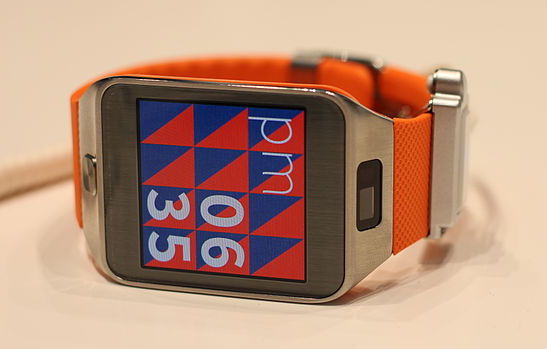Members of Samsung’s Strategy and Innovation Center (SSIC) team took the stage last week at San Francisco’s Jazz Center for a trio of announcements. All three releases announced at the “Voice of the Body” event focused on health technology—the company seems determined to beat competitors like Apple to the digital doctor’s office.
Taking things a step further, Samsung also made the case for a common diagnostic platform that could help improve mobile health sensors worldwide. So what’s the prognosis?
Triple Threat
Forbes highlights the SSIC’s three announcements: SAMI, Simband and the Samsung Digital Health Challenge.
- Samsung Architecture Multimodal Interactions (SAMI) is a data broker which lets wearable mobile health devices transfer information to the cloud. Developers can create new health apps that draw from this accessible data.
- The Simband is a reference design for building wrist-based devices and applications, which Samsung hopes will provide third-party manufacturers greater access to their “digital health ecosystem.” The developer also hopes to make Simbands wirelessly rechargeable, rather than requiring a connection to a docking station.
- The last SSIC announcement was Samsung’s Digital Health Challenge, a chance for developers to draw from part of the $50 million Samsung Catalyst Fund investment pool. These funds have been designated for companies focused on “innovation surrounding the delivery of wellness-related insight through the use of highly accurate, non-invasive sensors working in conjunction with advanced algorithms,” Forbes reports.
A New Vision
SAMI and the Simband jointly form the core of Samsung’s new vision for mobile health sensors—one built on an open platform rather than the more familiar closed-loop used by companies like Apple. As The Telegram recently noted, the establishment of a common system “would be similar to how different computers are built using the same processors and memory chips.” Currently, all Samsung Gear works only with Samsung phones, and in this respect lags behind companies like Sony, whose products work across multiple Android phones.
Samsung’s President and Chief Strategy Officer Young Sohn described his company’s Gear 2 products as second generation, a step up from fitness-tracking apps on smartphones; future generations will focus on detailed vital sign collection and preemptive health warnings. It’s no wonder, then, that Samsung is singing the praises of a common platform for mobile health sensors. Devices have a long way to go before they can move past surface-level statistics, and report more varied, accurate, and intuitive medical data.
Enabling cross-device interoperability and third-party development offers the chance for collaboration and rapid advancement, but makes Samsung a foundational player in the next-gen health market.
Does Samsung have the mobile health prescription, or will users still choose an Apple a day?
Image courtesy of Wikimedia Commons
[cf]skyword_tracking_tag[/cf]

